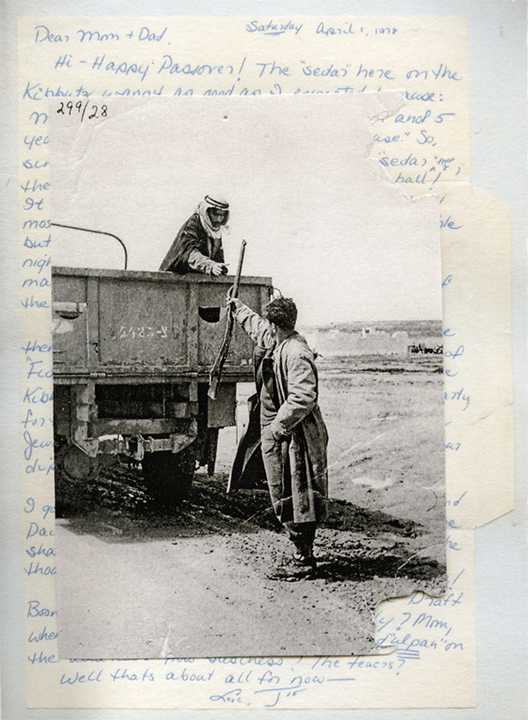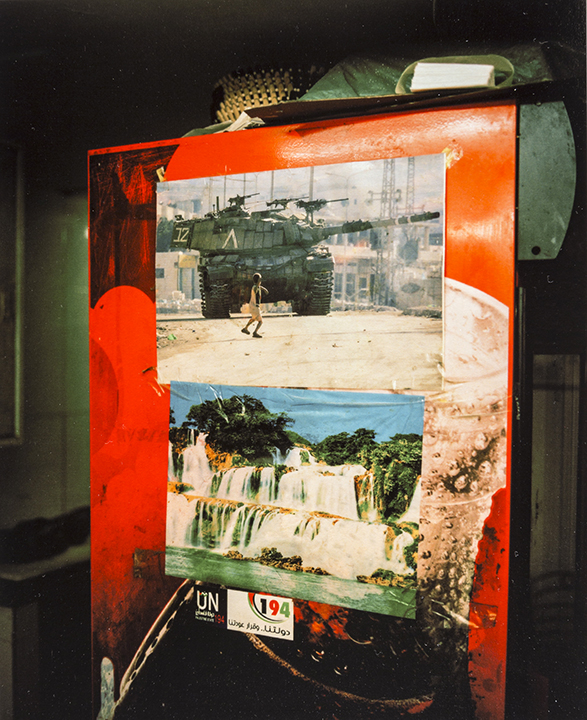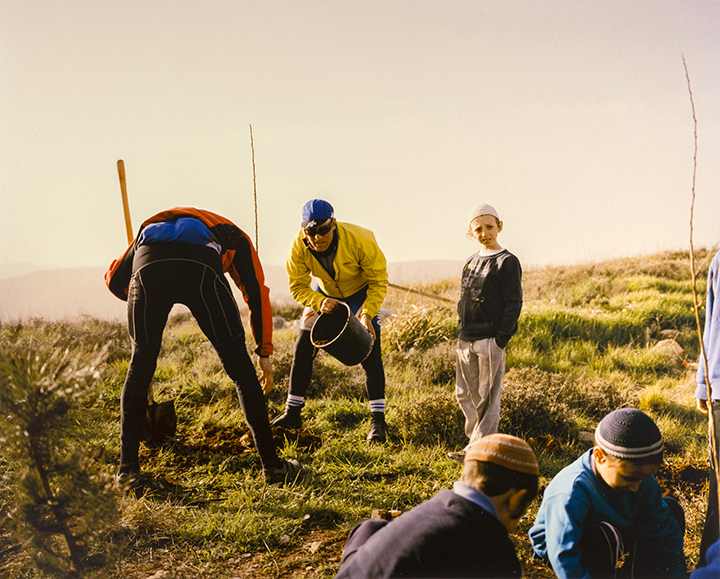About the Photographer
Golfer, Adam
American, b. 1985
Adam Golfer grew up in Silver Spring, Maryland, in the 1980s hearing accounts of his Jewish Lithuanian grandfather’s experiences in World War II concentration camps and his father’s brief time in a kibbutz in Israel in the 1970s. As an adult, Golfer’s firsthand experience photographing in Germany, and later Israel and the occupied West Bank, helped him connect the dots between his family history and the interwoven, often contradictory narratives of bloodshed and displacement that link Europe to Israel and Palestine. His project A House Without a Roof (2011–16) weaves a complicated history to map out the ripple effects of political brutality and conflict over time through layering text from telegrams, emails, text messages with photographs of his family and from his travels.
Between 2011 and 2016, Golfer photographed and visited archives in the Baltic states, Israel, the West Bank, Germany, and the United Kingdom. He documented places of personal significance, such as the house in which his grandmother was born in Lithuania, which was seized by the Nazis. He also photographed landscapes of conflict in both Israel/Palestine and Germany, such as the Olympic Park in Munich, where Israeli athletes were massacred in 1972, and where the hills depicted were built using rubble resulting from Allied bombing during World War II. In Air-o-gram (Dad to Poppop) (2012), Golfer collages an aerogram his father wrote to his parents from the kibbutz with a found photograph of a man handing another man a rifle, partially obscuring the letter’s content. In Lifta, a former Palestinian village (Jerusalem) & David Ben Gurion's Dish Towel (Tel Aviv) (2015), he places side-by-side a photo of towels from the home of Israel’s first Prime Minister next to an image of the rubble of a building in a depopulated Palestinian village in West Jerusalem.
When he installs the series, pictures hang high and low on the walls, big and small, framed and unframed, accompanied by a video and the slide projectors—all to engulfing effect. As visual analogy to the complex intermingling of representation, identity, and memory, we are left to map our stories for ourselves within the framework Golfer provides. We must reconcile our own, perhaps vague, understanding of these issues with the details of lived experience that he provides, as well as with more poetic imagery that reflects the ambiguity of historical record.
Adam Golfer completed his BFA in Photography from the Maryland Institute College of Art (2007) and an MFA in Interdisciplinary Fine Art from Hunter College (2016). Solo exhibitions include the Goethe-Institut Washington, Washington, DC (2011); Brooklyn Artists’ Space, NY (2015); Arts Center Kuldiga, Kuldiga, Latvia (2016); Hunter College, New York, NY (2016); and Aperture Gallery, New York, NY (2016). He was recognized in PDN30's "30 Emerging Photographers Under 30" (2013). He was awarded the Snider Prize for Photography from the MoCP (2016), the Ten Best Photography Books of the Year from 1000 Words (2016), and the Best Photography Book Award from Kraszna- Krausz Foundation (2017). He has lectured at Hunter College, Maryland Institute College of Art, Parsons, and New York University. Golfer works as a commercial photographer and has published photographs for TIME, Vogue, and Esquire magazine. He currently lives and works in Brooklyn, NY.



